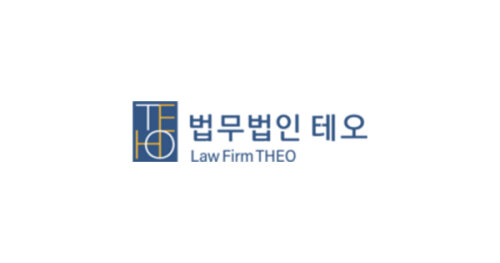Best Real Estate Contracts and Negotiations Lawyers in Yeonsu-gu
Share your needs with us, get contacted by law firms.
Free. Takes 2 min.
Free Guide to Hiring a Real Estate Lawyer
List of the best lawyers in Yeonsu-gu, South Korea
About Real Estate Contracts and Negotiations Law in Yeonsu-gu, South Korea
Real estate transactions in Yeonsu-gu, a district of Incheon that includes major developments such as Songdo International Business District, are governed primarily by national Korean law with local administrative procedures and market conditions affecting negotiations. Typical transactions include sale-purchase of land and buildings, apartment pre-sales, jeonse deposits, monthly rent agreements, commercial leases, and brokerage services. Key legal steps include drafting and signing a written contract, paying deposits, registering title and lease rights at the court registry, paying acquisition and registration taxes, and complying with local zoning or redevelopment rules. Because transactions often involve large sums and multiple legal risks, many parties use professional brokers and lawyers to verify documents, confirm ownership and encumbrances, negotiate contract terms, and handle registration and dispute prevention.
Why You May Need a Lawyer
You may benefit from a lawyer when you face any complexity or risk that could cause financial loss or legal dispute. Common situations include:
- Buying property with unclear title, mortgages, or other encumbrances that require title searches and lien resolution.
- Entering or exiting jeonse or wolse (monthly rent) agreements where deposit protection and registration affect priority on insolvency of the landlord.
- Disputes over contract performance such as defects, late delivery, defective construction in new apartments, or failure to transfer ownership.
- Brokerage fee disputes, improper brokerage conduct, or breach of the brokerage contract.
- Negotiations involving redevelopment projects, presale apartments, or property in special development zones like Songdo, which have specific regulatory regimes.
- Zoning, land-use change, and permit issues that may affect the property value or legal ability to develop.
- Cross-border or foreign buyer issues including restrictions on foreign ownership, mandatory reporting, or tax implications.
- Evictions, unlawful occupation, or urgent actions requiring injunctions or provisional measures.
Local Laws Overview
Below are the principal laws and legal concepts that are particularly relevant in Yeonsu-gu.
- Korean Civil Act - Governs basic contract law, obligations, and property rights. Sale-purchase contracts, deposit rules, and remedies for breach derive from the Civil Act.
- Housing Lease Protection Act - Provides tenant protections for jeonse and monthly rental agreements including rules on deposit priority if the landlord is insolvent and requirements for registering leases to protect tenant priority against competing claims.
- Act on Real Estate Registration - Title, mortgage, and registered lease rights are protected through registration at the Supreme Court Registry. Registration is decisive for notice and priority against third parties.
- Real Estate Brokerage Act - Regulates brokers and brokerage contracts. Brokers must hold licenses and follow disclosure and written contract obligations. This act also governs brokerage fees.
- Taxation and Transfer Costs - Acquisition tax, registration tax, and potential capital gains tax apply to real estate transfers. Local tax offices administer acquisition taxes and national tax authorities handle capital gains issues.
- Special Development and Zoning Rules - Yeonsu-gu includes areas subject to special plans such as Songdo development. Zoning changes, building permits, and redevelopment laws can materially affect transactions and timing.
- Consumer Protection for Presale Apartments - Regulations require disclosure and consumer protections for apartment pre-sales, and there are reporting requirements for development projects.
Frequently Asked Questions
How do I check who legally owns a property in Yeonsu-gu?
Obtain a certified copy of the real estate register from the local court registry. The register will show the registered owner, mortgages, liens, and any registered lease rights. A lawyer or licensed real estate agent can help interpret the register and confirm whether the seller can legally transfer title.
What is jeonse and how is my deposit protected in Yeonsu-gu?
Jeonse is a large lump-sum deposit lease common in Korea. Under the Housing Lease Protection Act, tenants who register their lease at the registry gain priority over other unsecured creditors if the landlord becomes insolvent. Unregistered leases may have weaker protection. Lawyers can help ensure proper registration and consider additional protections such as escrow arrangements.
Do I need a written contract for buying or renting property?
Yes. While oral agreements can be binding under the Civil Act, written contracts provide clear evidence of terms and are essential for complex transactions. Brokerage agreements must be in writing under the Real Estate Brokerage Act. Written contracts should include price, deposit and payment schedule, delivery date, condition of property, and remedies for breach.
How can I resolve a dispute with a broker over fees or misrepresentation?
First, gather written evidence such as the brokerage contract, messages, and payment records. Attempt negotiation or mediation through local consumer mediation bodies. If unresolved, you may file a civil claim for damages or seek disciplinary action through the local real estate brokerage supervisory authorities. A lawyer experienced in brokerage disputes can advise on the best route.
What taxes and fees should I expect when buying property in Yeonsu-gu?
Buyers typically pay acquisition tax and registration tax. Sellers may face capital gains tax depending on holding period and exemptions. There are also brokerage fees and notary or legal fees. Tax rates and exemptions vary by property type and owner status, so consult a tax advisor or lawyer for precise calculations.
Can a foreigner buy property in Yeonsu-gu?
Foreign nationals can generally purchase property in South Korea, but some restrictions apply in certain areas or for specific land types. Purchase of land may require notification or approval under the Foreign Exchange Transactions Act or related regulations. Foreign buyers should obtain legal advice and confirm any reporting or registration obligations.
What should be included in a sale-purchase contract to protect me as the buyer?
Key terms include accurate identification of the property, total price and payment schedule, deposit amount and forfeiture conditions, warranties about title and encumbrances, completion date, inspection and defect remedies, transfer and registration procedures, and dispute resolution clauses. Contingencies for loan failure or permit issues are also common protections.
How do redevelopment or zoning changes in Yeonsu-gu affect my property rights?
Redevelopment projects and zoning changes can change permitted uses, require relocation, or affect property values. Some redevelopment processes involve compensation or new ownership arrangements. Before buying, check local planning documents and consult with a lawyer to assess risks and entitlements under redevelopment law.
What urgent steps should I take if the seller backed out after I paid a deposit?
Review the contract to see what it says about default and deposit forfeiture. You can demand specific performance or damages, and in some cases request provisional injunctions to protect your position. Preserve all evidence, put the seller on written notice, and consult a lawyer quickly to determine whether to sue or seek emergency relief.
Where can I mediate a landlord-tenant or contract dispute in Yeonsu-gu?
Local community mediation centers and the district courthouse offer mediation services for civil disputes. Many disputes are resolved through mediation or settlement. If mediation fails, you can bring a civil lawsuit. A lawyer can represent you in mediation and litigation and advise on realistic outcomes.
Additional Resources
Below are local and national institutions and organizations that can help with questions and procedures.
- Yeonsu-gu Office - for local administrative procedures, permits, and community information.
- Incheon Metropolitan City Office - for city-level planning, zoning, and regional development information.
- Supreme Court Registry Office - for certified copies of real estate registers and official registration procedures.
- Ministry of Land, Infrastructure and Transport - national policies, housing regulations, and development rules.
- Korean Bar Association and the Incheon Bar Association - for lawyer referral services and professional standards.
- Korea Legal Aid Corporation - low-cost or free legal consultations for qualifying individuals.
- Local tax office - for inquiries on acquisition tax, registration tax, and related procedures.
- Real Estate Brokerage associations - for information on licensed brokers and professional conduct standards.
- Community mediation centers and district courts - for mediation and dispute resolution services.
Next Steps
If you need legal assistance in Yeonsu-gu, follow these practical steps:
- Gather documents - contract drafts, title registry extracts, building registers, brokerage agreements, payment records, and any correspondence.
- Get a certified real estate register extract to confirm ownership and encumbrances.
- Consult a lawyer who specializes in Korean real estate law and, if possible, has local Yeonsu-gu or Incheon experience. Ask about their experience with similar cases, fee structure, and likely timeline.
- Consider an initial consultation to identify risks, required searches, and immediate protective steps such as lease registration or filing a memorandum at the registry.
- Decide on dispute resolution strategy - negotiation, mediation, or litigation - with your lawyer, and prepare supporting evidence.
- If cost is a concern, check eligibility for free or low-cost legal advice from the Korea Legal Aid Corporation or local legal clinics.
- Keep thorough records of all transactions and communications, and follow your lawyer's guidance on signing, registration, and tax steps to complete the transaction safely.
Real estate deals can be straightforward or highly complex. Early legal review and clear documentation reduce the chance of costly disputes and ensure your rights are protected under the laws that apply in Yeonsu-gu and across South Korea.
Lawzana helps you find the best lawyers and law firms in Yeonsu-gu through a curated and pre-screened list of qualified legal professionals. Our platform offers rankings and detailed profiles of attorneys and law firms, allowing you to compare based on practice areas, including Real Estate Contracts and Negotiations, experience, and client feedback.
Each profile includes a description of the firm's areas of practice, client reviews, team members and partners, year of establishment, spoken languages, office locations, contact information, social media presence, and any published articles or resources. Most firms on our platform speak English and are experienced in both local and international legal matters.
Get a quote from top-rated law firms in Yeonsu-gu, South Korea — quickly, securely, and without unnecessary hassle.
Disclaimer:
The information provided on this page is for general informational purposes only and does not constitute legal advice. While we strive to ensure the accuracy and relevance of the content, legal information may change over time, and interpretations of the law can vary. You should always consult with a qualified legal professional for advice specific to your situation.
We disclaim all liability for actions taken or not taken based on the content of this page. If you believe any information is incorrect or outdated, please contact us, and we will review and update it where appropriate.









